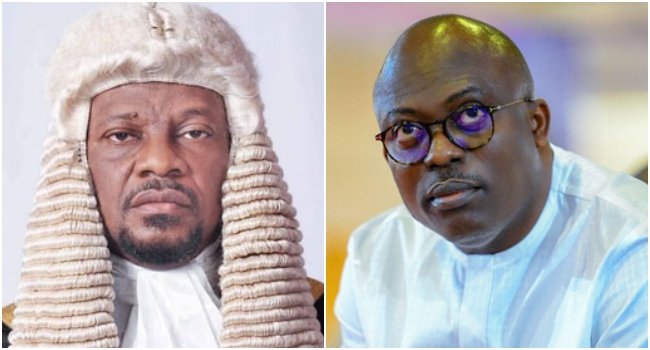Korede Abdullah in Lagos
President Bola Tinubu has declared a state of emergency in Rivers State, citing the prolonged political crisis that has plagued the oil-rich state since September 2023.
In a nationwide broadcast on Tuesday, Tinubu announced the suspension of Governor Siminalayi Fubara, Deputy Governor Ngozi Odu, and all members of the Rivers State House of Assembly for an initial period of six months.
To oversee the state during the emergency rule, the President appointed a former Chief of Naval Staff, Admiral Ibokette Ibas (retd.), as the administrator.
This decision is backed by the 1999 Constitution, which empowers the President to declare a state of emergency under specific conditions, including a breakdown of public order and safety, or a clear and present danger of such a breakdown.
The proclamation must be published in the official government gazette and ratified by the National Assembly, requiring approval from two-thirds of its members.
Tinubu’s action marks the fourth time a state of emergency has been declared by a sitting President since Nigeria’s return to democracy in 1999.
Western Region State of Emergency (1962)
One notable instance was in 1962 when Prime Minister Tafawa Balewa declared a state of emergency in Western Nigeria due to large-scale irregularities in the country’s first real census.
This led to a crisis in the Action Group (AG)-controlled Western Nigeria, with Balewa accusing certain politicians of violent intentions to overthrow the government.
The ban on public meetings and processions was extended, and Chief Awolowo was formally charged with conspiring to overthrow the Federal Government by force.
Plateau State (2004)
In May 2004, President Olusegun Obasanjo imposed emergency rule in Plateau State following widespread ethno-religious violence. The governor and state assembly were suspended, and retired Major General Chris Alli was appointed administrator.
Ekiti State (2006)
A political crisis in Ekiti State led to a state of emergency in October 2006. The controversy surrounding the impeachment of Governor Ayo Fayose caused unrest, prompting Obasanjo to appoint retired Brigadier General Adetunji Olurin as administrator.
Borno, Yobe, and Adamawa States (2013)
In May 2013, President Goodluck Jonathan declared a state of emergency in Borno, Yobe, and Adamawa states due to the escalating Boko Haram insurgency.
Unlike previous instances, the governors and state assemblies in these states were allowed to remain in office, but the military presence was increased and curfews were imposed to combat the insurgent activities.
This move was part of the government’s efforts to restore order and security in the affected regions.



